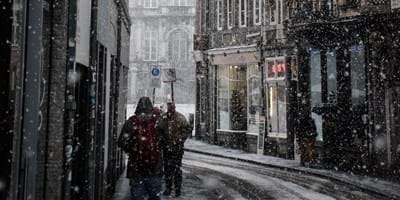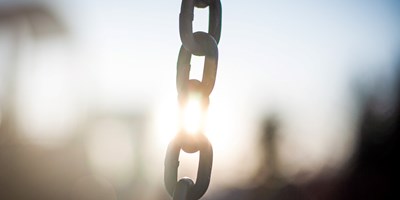Transcript:
Stephen: So, when Adam took the fruit and sinned, he defied God — we've talked about that. He doesn't immediately die; he doesn't fall to the ground dead. God said, "The day you eat of the tree, you shall surely die." So what's going on there? Why doesn’t he die? Was God's promise not fulfilled?
Joel: Yeah. I think the answer is yes, but maybe not in the way we’d expect. We tend to think of death in the physical sense — the soul separating from the body. And the Bible does talk about that, but the idea is much deeper. Death is about separation, just as life is about connection.
Life is connection — to friends, to family, even to things like music or nature. Without those connections, we’re not really living — we’re just existing. So if life is connection, death is separation. And that’s what happened. Adam and Eve lost paradise. They lost their relationship with God.
Yes, they became subject to physical death — they began to die — but something even more serious happened. Their sin separated them from God. Isaiah says, "Your sins have separated between you and your God." That’s true of us as well — our sins separate us from God.
Stephen: Yeah. As soon as Adam and Eve ate the fruit, they saw they were naked and covered themselves. Then they hear the voice of the Lord in the garden, and they hide. So already, there’s evidence that something has changed — some kind of death has happened.
Joel: Exactly. And this is the dreadful paradox humanity lives with. We can’t bear to be in God’s presence in our sin — and yet we were made for relationship with him. So we can’t live with him, but we can’t live without him. We’ll never find joy or rest apart from him.
This is also the first time we read about fear in the Bible. Adam says, "I was afraid." Fear didn’t exist before. That’s the fallout of sin — separation from God, the loss of that perfect relationship. And yet we still need him. Our hearts long for him, but our hearts are also rebellious and defiant.
Stephen: Yeah. So before the fall, he knew God as a Father. But now he's cowering, because God the Judge is coming to hold him accountable.
Joel: Absolutely. He walked with God in the cool of the day — there was friendship and fellowship. That’s how it was meant to be. But by the end of Genesis 3, Adam and Eve are driven out of Eden.
It’s a dramatic scene — they’re banished from God's presence, and an angel stands with a flaming sword to block the way back. That shows us something about God's character. He is holy — sin cannot be in his presence. If our sin isn’t dealt with, we can’t be with him.
And God is righteous. He must deal with sin — he can't sweep it under the carpet. That’s why the sword is there. Sin must be punished. So we see both God's holiness and his righteousness at work in that moment.
Stephen: And they’re also cut off from the tree of life.
Joel: Right.
Stephen: And that becomes a massive theme in the Bible. Because when you get to Revelation 22 — the end of the Bible — you see the tree of life again. Those who are saved and delivered from sin are now back in God's presence, and the tree of life is there.
Joel: Yeah, that whole arc — from the tree of life in Genesis to the tree of life in Revelation — is amazing. And that arc is accomplished by way of a third tree — the cross. Peter tells us Jesus bore our sins in his body on the tree.
Because of our sin, the Son of God had to go to a tree of death, so that God's purpose — for those who turn to him — could be fulfilled, and we could again experience the tree of life.
And even in Genesis 3, we see God's mercy. He says they’re being driven out so they don’t take from the tree of life and live forever. To live forever in a fallen state would be unbearable. So God blocks access — not as punishment, but as mercy.
But in the future, through Christ, we will eat from the tree of life and live forever — because of his sacrifice.
Stephen: Right. We’ll continue this next time. We’ll see how that broken relationship with God leads to brokenness in every other part of life.























